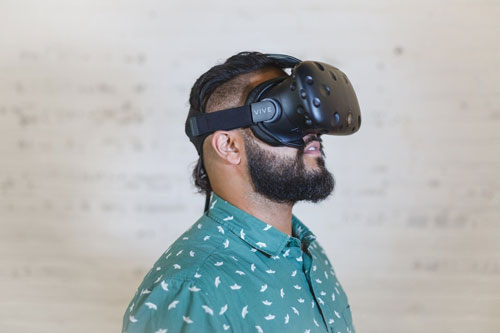Virtual reality could be a valuable therapeutic tool and already has preliminary evidence for helping people who struggle with social anxiety, eating disorders and posttraumatic stress disorder. In virtual reality, sensors detect a person’s movements; when a person moves their real body, they move an embodied virtual body. From this first-person perspective, people have an immersive experience of inhabiting different bodies and navigating different situations.

People struggling with depression often have particularly high levels of self-criticism and self-compassion is an important predictor of psychological well-being for these people. In addition, some people may find it easier to extend compassion to other people than to themselves. Based on this idea, a group of researchers at Cambridge explored whether virtual reality could help patients struggling with depression become more open to self-compassion. In the first phase of the study, participants interacted compassionately with a crying virtual child while embodying a virtual adult body. A mirror in the virtual room allowed participants to see their virtual body. In the second phase of the study, participants embodied the virtual child body and received these same words of comfort which were recorded from the previous session. Participants completed this exercise two additional times, at approximately weekly intervals. If you’d like to see this study in action, one of the researchers posted this video of someone participating.
Over the course of the study and a 4-week follow-up appointment, patients’ depressive symptoms and self-criticism decreased, while their self-compassion increased. Of the 15 patients, 5 experienced reliable improvements and an additional 4 experienced clinically significant change in their depression (i.e. noticeable change in daily life).
Clinical Take-Away
This research provides indirect support that perspective taking and imagery practices might can be useful for developing self-compassion. Since most of us don’t have a virtual reality device in our office, we can instead teach our clients to practice sending themselves compassion through a variety of other exercises, such as compassionate imagery or Lovingkindness Meditations. One patient in this study reported discovering that “we are all human and vulnerable and it’s ok to be vulnerable as an adult.” Over time, these types of exercises may help other people find peace with self-compassion, too.